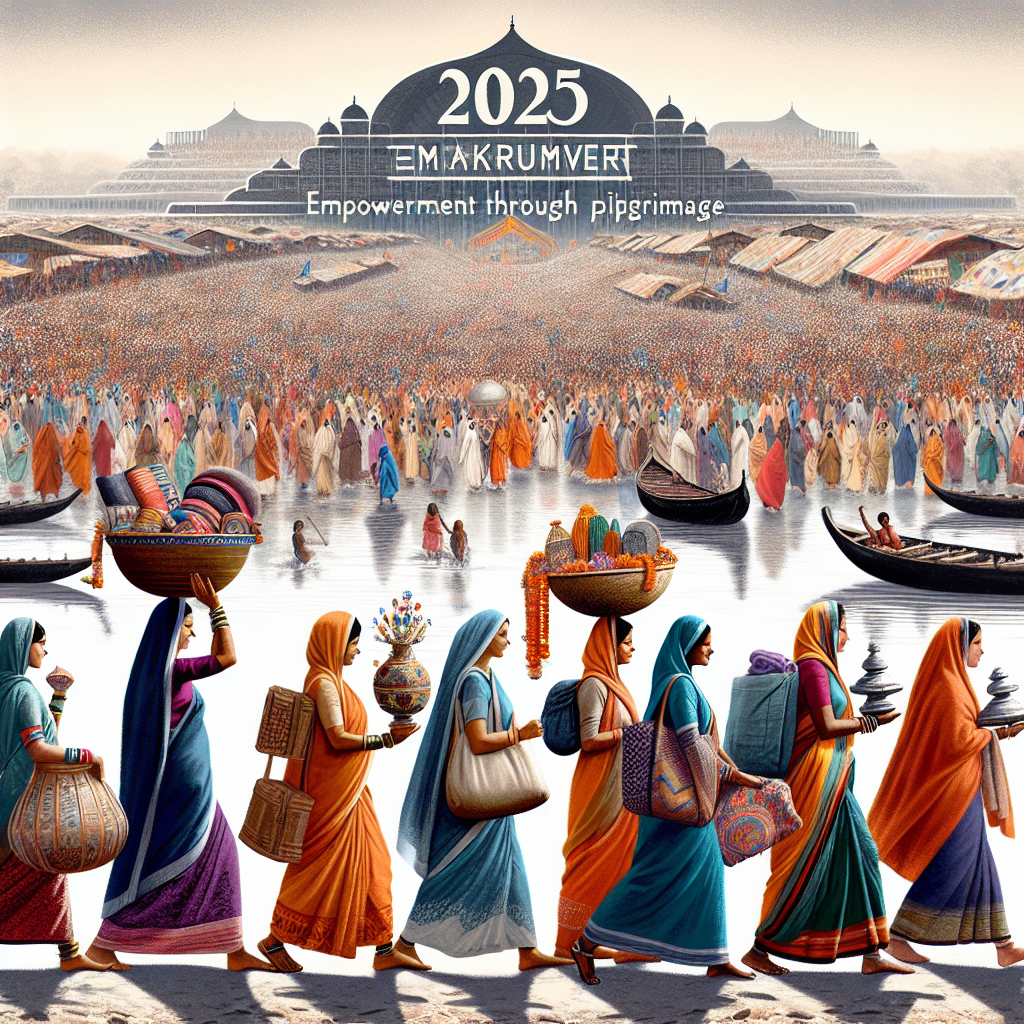[ad_1]
Empowerment through Pilgrimage: Women’s Participation in Mahakumbh 2025
The Mahakumbh, often considered the largest gathering of human beings on Earth, transcends mere religious significance. It epitomizes the confluence of spirituality, culture, and community. As the world turns its eyes toward the Mahakumbh 2025, the spotlight on women’s participation and empowerment in this grand event has never been brighter. This article delves into the historical context, significance, and potential impact of women’s involvement in the upcoming Mahakumbh.
The Historical Context of Mahakumbh
The Kumbh Mela, designated as a UNESCO Intangible Cultural Heritage, occurs every three years, rotating among four sacred riverbanks across India: Haridwar, Allahabad (Prayagraj), Nashik, and Ujjain. The Mahakumbh, a grander version, takes place every 12 years, with Prayagraj being the site for the next event in 2025. Traditionally, this event has served as a spiritual haven for millions, offering them an opportunity for purification, reflection, and renewal.
Historically, women’s participation in Kumbh Mela was limited, primarily constrained by societal norms and safety concerns. However, significant societal shifts have unfolded in recent years, heralding a wave of transformation in gender dynamics within Hindu religious practices.
Breaking Barriers: Women’s Growing Involvement
Recent editions of the Kumbh have seen an impressive rise in women’s participation. More than just attendees, women have taken on roles as initiators and leaders, emphasizing their burgeoning empowerment. This shift is facilitated by changing perceptions of gender roles within Indian society, where women’s agency is increasingly recognized and celebrated.
As we approach the Mahakumbh 2025, numerous initiatives aim to further encourage and support women pilgrims. Camps and facilities designed with women in mind are being established, ensuring their safety and comfort while promoting their active participation. Furthermore, community programs and workshops are being organized to educate women about spiritual practices and health-related issues, ranging from hygiene to mental well-being.
Empowerment through Spirituality and Community
The spiritual journey that comes with pilgrimage is inherently empowering. For many women, participating in the Mahakumbh is not just an act of faith but a path toward self-discovery and community building. As they gather for rituals, spiritual discourses, and cultural performances, women form bonds that transcend geographical and cultural barriers. These connections foster a sense of solidarity and shared purpose, reinforcing their collective strength.
Celebrating Diversity in Participation
Recognizing the diversity within women’s experiences is crucial. Women from various backgrounds—rural and urban, young and old—come together at the Kumbh, each bringing unique perspectives and stories. The Mahakumbh serves as a platform for these narratives, showcasing traditional wisdom, innovative practices, and a shared vision for the future.
Community leaders and activists are working to ensure that underrepresented groups, including marginalized women, have access to the pilgrimage. Through educational programs and financial assistance, these initiatives aim to bridge the gap, ensuring that every woman, regardless of her socio-economic status, can partake in this transformative experience.
Social Media and Modern Pilgrimage
In an age of digital connectivity, social media plays a pivotal role in amplifying women’s voices within the pilgrimage context. Women are using platforms like Instagram, Twitter, and Facebook to narrate their experiences, share stories, and promote causes related to women’s rights, health, and empowerment during the Kumbh. This trend not only enhances visibility for women’s issues but also inspires a new generation to take part in the Kumbh and other spiritual endeavors.
Conclusion: A Collective Journey Towards Empowerment
The Mahakumbh 2025 is poised to be a historical moment not just for spiritual seekers, but particularly for women who are reclaiming their space within this sacred context. Their participation signifies not only a personal journey toward empowerment but also a collective aspiration for gender equality and social change.
As women come together in the sacred waters of the Ganges, they are not merely performing rituals; they are crafting a new narrative—one that intertwines spirituality with empowerment and community sharing. The Mahakumbh 2025 could very well be remembered as a crucial milestone in the quest for women’s empowerment, where, through the act of pilgrimage, they find their voices, strength, and agency in shaping the future.
[ad_2]

